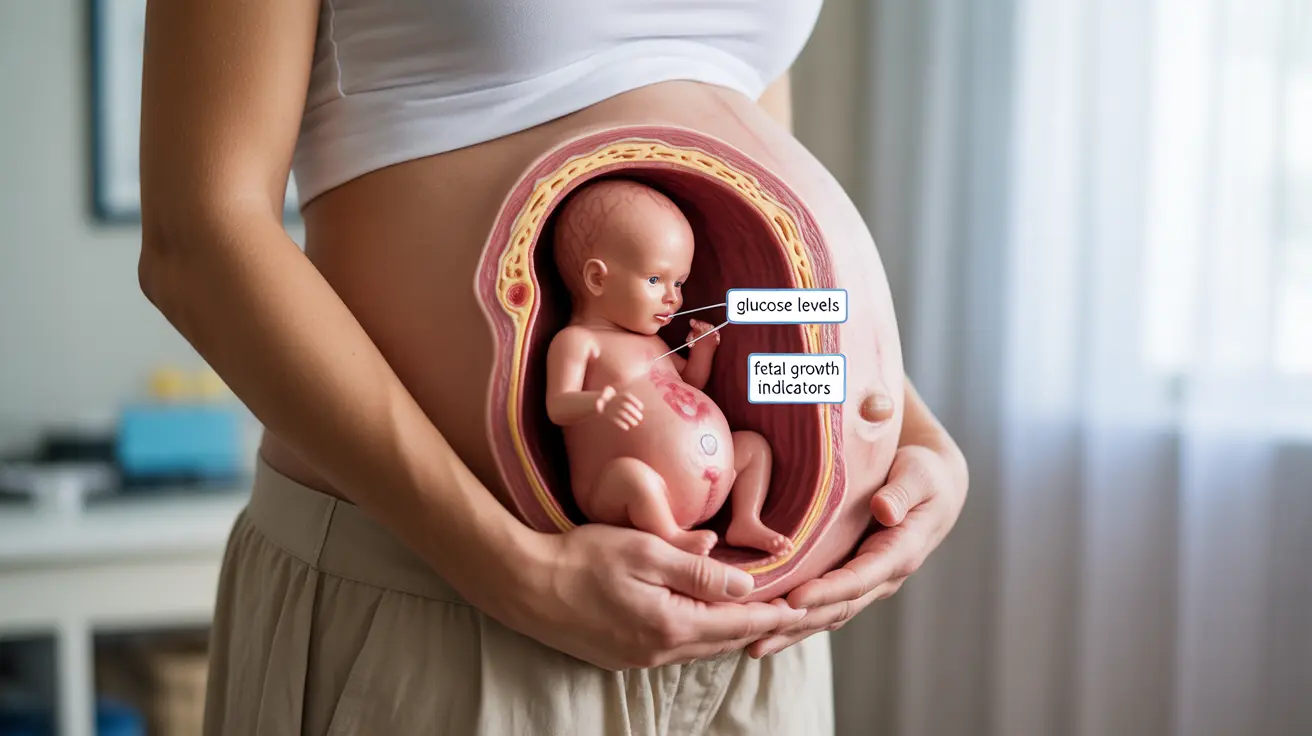Gestational diabetes during pregnancy can have significant implications for your developing baby. Understanding these potential effects is crucial for expecting mothers to ensure the best possible outcomes through proper management and care. This comprehensive guide explores how gestational diabetes might impact your baby's health, both during pregnancy and after birth.
Understanding the Impact on Fetal Development
When a mother develops gestational diabetes, her elevated blood sugar levels can directly affect her baby's growth and development. The excess glucose crosses the placenta, causing the baby's pancreas to produce more insulin in response. This metabolic change can lead to various effects on the developing fetus.
Macrosomia and Growth Concerns
One of the primary effects of gestational diabetes is macrosomia, where babies grow larger than average. These babies often weigh more than 9 pounds at birth, which can lead to delivery complications and increase the likelihood of requiring a cesarean section. The excess growth typically occurs in the upper body, making vaginal delivery more challenging.
Immediate Birth Complications
Blood Sugar Regulation
Newborns of mothers with gestational diabetes may experience difficulties regulating their blood sugar levels immediately after birth. When the constant supply of glucose from the mother stops after delivery, these babies might experience hypoglycemia (low blood sugar) because their bodies are still producing excess insulin.
Respiratory Challenges
Babies born to mothers with gestational diabetes have a higher risk of developing respiratory distress syndrome (RDS). This condition can make breathing difficult for newborns, particularly if they're delivered before their lungs are fully mature. These babies might require additional support in the neonatal intensive care unit (NICU).
Long-term Health Considerations
The effects of gestational diabetes can extend beyond the newborn period. Children born to mothers with gestational diabetes may face increased risks of certain health conditions later in life, including:
- Higher likelihood of developing type 2 diabetes
- Increased risk of childhood obesity
- Greater chance of metabolic syndrome
- Potential cardiovascular health issues
Managing Risks Through Proper Care
The good news is that many of these risks can be significantly reduced through proper management of gestational diabetes during pregnancy. This includes:
- Regular blood sugar monitoring
- Following a balanced diet plan
- Engaging in appropriate physical activity
- Taking prescribed medications if necessary
- Attending all prenatal appointments
Frequently Asked Questions
How does gestational diabetes affect the baby's size and birth complications?
Gestational diabetes can cause babies to grow larger than normal (macrosomia), potentially leading to difficult deliveries and an increased need for C-sections. The condition can also raise the risk of birth injuries and shoulder dystocia during vaginal delivery.
What are the risks of low blood sugar and breathing problems in babies born to mothers with gestational diabetes?
Babies may experience hypoglycemia (low blood sugar) after birth due to their increased insulin production. They also have a higher risk of respiratory distress syndrome, which can cause breathing difficulties and may require NICU support.
Can gestational diabetes cause long-term health issues like obesity or diabetes in my child?
Yes, children born to mothers with gestational diabetes have an increased risk of developing obesity, type 2 diabetes, and metabolic syndrome later in life. However, these risks can be minimized through proper maternal care during pregnancy and healthy lifestyle choices after birth.
How can managing gestational diabetes during pregnancy reduce risks for my baby?
Careful management of blood sugar levels through diet, exercise, and medication (if needed) can significantly reduce complications for your baby. Regular monitoring and following your healthcare provider's recommendations help maintain optimal glucose levels and promote healthy fetal development.
What complications can gestational diabetes cause for my baby immediately after birth?
Immediate complications may include low blood sugar, breathing problems, jaundice, and difficulty maintaining body temperature. These conditions typically require close monitoring in the first few days after birth and may necessitate special care in the NICU.




